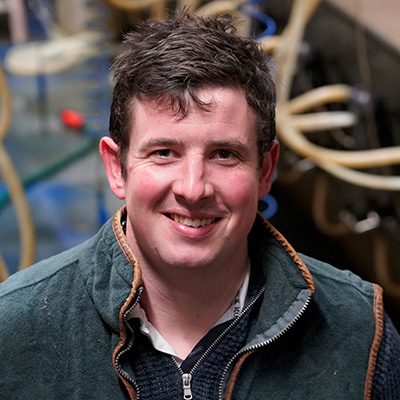Opinion: New First Minister must consult with the countryside
 © C Pool/Reuters/Adobe Stock
© C Pool/Reuters/Adobe Stock I’ve spent the past few evenings glued to the sofa watching the new season of Clarkson’s Farm. The self-proclaimed idiot, joined by his long-suffering sidekicks, produces laugh-out-loud TV gold.
As a farmer, it’s easy to identify the clearly scripted moments, but they ably manage to eloquently explain complex issues to a wide audience in a way that the likes of Countryfile fails to do.
Throughout his career, he has had a reputation for brilliant storytelling and his advocacy for farming can only be seen as a positive for British farmers, albeit with some moments where I did cringe at the lack of health and safety.
See also: Opinion – People are still farming’s greatest asset
While the show’s funniest moments come from Jeremy’s self-inflicted mishaps, the storyline for the series bases itself on the many hurdles farmers have to negotiate to survive.
These challenges are well understood in the farming community, which is constantly told to change, improve and become more independently sustainable.
I attended the NFU Scotland AGM and conference in Glasgow recently, where the mood was positive and the speakers shared their own stories of success.
What they all had in common, though, was that they had not waited on government policy to “fix” their businesses – instead they shared how poorly government consults on the impacts of new policy on small rural businesses.
In Scotland alone, setting slow progress on agriculture policy aside, rural businesses that are looking to a sustainable diversified future are encountering a number of unhelpful hurdles.
Kay Wilson, whose family runs a growing and successful agritourism business on the banks of Loch Lomond, highlighted the costs involved with the new self-catering licensing scheme, which was introduced countrywide to solve the Airbnb pressures of urban Edinburgh.
Jenny Mckerr from the Wee Farm Distillery also brought attention to the problems caused by the new deposit return scheme, being rolled out across Scotland to tackle waste, at a time when the business was still recovering from the Covid pandemic.
This, alongside a consultation due for release on the banning of alcohol advertising in Scotland, is a real issue for the distillery’s craft gin sales.
In isolation, these new policies could be helpful. Governments are doing what they should do – come up with new ideas to solve issues and make our country a better place to live and work.
However, as with all change, there must be consultation with communities and businesses to ensure it is what they want and that there are no unintended consequences.
What we are seeing specifically within the Scottish government is a complete disregard for compromise – it’s consult and ignore, followed by disbelief when the consequences of which they were warned come to pass.
In reality this is what brought down Nicola Sturgeon’s premiership as First Minister. Whoever takes on the role next must do better – not only for the good of Scotland’s economy, but also to give them any hope of re-election.
We must see a government that supports growth, one which champions its entrepreneurial people, supports them and isn’t scared of success.
As for who our next First Minister will be, well, sometimes unlikely candidates emerge. My mind goes to the US where an outspoken multimillionaire TV personality achieved high office when no one thought he could…

